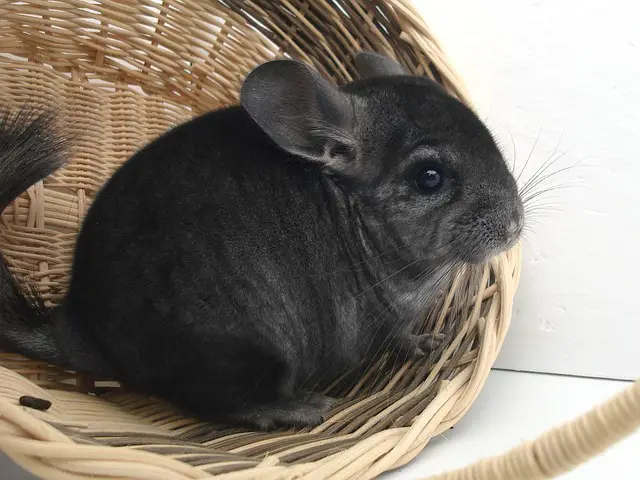Chinchillas are popular pets known for their soft and fluffy fur. However, caring for them can be challenging, especially regarding their health. One of the most common concerns among chinchilla owners is whether paint fumes can harm their pets.
Paint fumes can be dangerous to chinchillas since they have sensitive respiratory systems. When exposed to paint fumes, chinchillas may experience difficulty breathing, coughing, and even develop respiratory infections.
Additionally, some paints contain harmful chemicals that can cause liver and kidney damage, leading to serious health problems in chinchillas.
It is essential to take necessary precautions when painting around chinchillas. Owners should ensure that their pets are kept in a well-ventilated area away from the paint fumes.
They should also avoid using paints that contain harmful chemicals and opt for pet-friendly alternatives. Overall, it is crucial to prioritize the health and safety of chinchillas when painting in their vicinity.
Paint Fumes and Chinchillas
Chinchillas are sensitive animals that require a clean and healthy environment to thrive. As such, it is essential to be mindful of any potential hazards that may affect their well-being, including exposure to paint fumes.
Potential Risks
Paint fumes can harm chinchillas, as they have sensitive respiratory systems that are easily irritated by airborne pollutants. Inhaling paint fumes can cause respiratory distress, leading to serious health problems if left untreated.
Furthermore, some paints may contain toxic chemicals that can harm chinchillas if ingested.
Chinchillas are known to chew on objects in their environment, so it is essential to ensure that any painted surfaces are free of toxins that could be harmful if ingested.
Symptoms of Exposure
Chinchillas exposed to paint fumes may exhibit various symptoms, including coughing, sneezing, wheezing, and difficulty breathing. In severe cases, exposure to paint fumes can lead to respiratory failure, which can be fatal if not treated promptly.
Other symptoms of exposure to paint fumes may include lethargy, loss of appetite, and decreased activity level.
If you suspect your chinchilla has been exposed to paint fumes, it is essential to seek veterinary care immediately to prevent serious health complications.
In conclusion, being mindful of the potential risks associated with paint fumes and chinchillas is essential.
By taking appropriate precautions to minimize exposure, such as ensuring proper ventilation and avoiding toxic paints, you can help ensure your chinchilla remains healthy and happy.
Preventing Exposure
Choosing Safe Paints
When painting around chinchillas, it is essential to choose a paint that is safe for them. Look for paints that are labeled as non-toxic and safe for small animals.
Avoid using paints containing volatile organic compounds (VOCs), as these can harm chinchillas. Water-based paints are generally safer than oil-based paints.
Proper Ventilation
Proper ventilation is essential when painting around chinchillas. Ensure the area is well-ventilated by opening windows and doors and using fans to circulate the air.
Avoid painting in enclosed spaces or rooms without proper ventilation, as this can cause paint fumes to build up and harm your chinchilla.
Alternative Living Arrangements
It is best to move your chinchilla to a different room or area of the house while the painting is done. This will help to prevent exposure to paint fumes.
If you cannot move your chinchilla, ensure their living area is covered and sealed off from the painting area. This can be done with plastic sheeting or tarps.
Taking precautions when painting chinchillas is essential to prevent exposure to harmful fumes.
By choosing safe paints, ensuring proper ventilation, and considering alternative living arrangements, you can help keep your chinchilla safe and healthy.
Conclusion
In conclusion, chinchillas are sensitive animals that require a safe and healthy environment. While paint fumes may not be deadly to chinchillas, they can cause respiratory problems and other health issues. Therefore, it is essential to take precautions when painting near chinchillas or in their living space.
One of the best ways to protect chinchillas from paint fumes is to move them to a different location while painting. If this is impossible, ensure the room is well-ventilated with open windows and fans. Use a low-odor, non-toxic paint that is safe for animals. Finally, cover the chinchilla’s cage with a sheet or plastic cover to prevent paint particles from settling on their fur or bedding.
Monitoring the chinchilla’s behavior and health after painting is also important. See veterinary care immediately if they show respiratory distress or other health problems.
Taking the necessary precautions and being mindful of the risks can help keep chinchillas safe and healthy in a painted environment.





